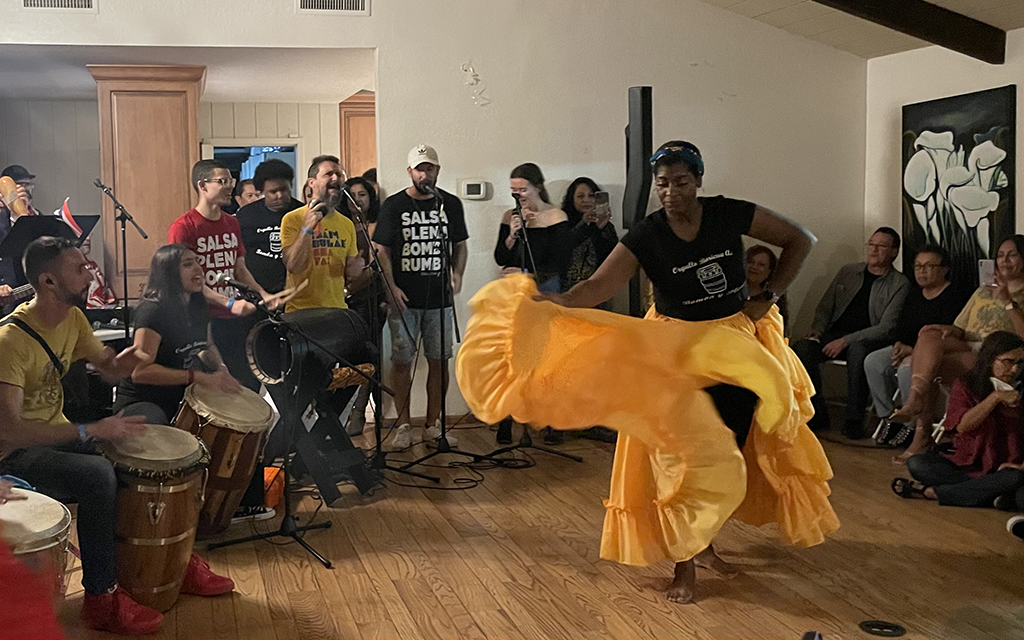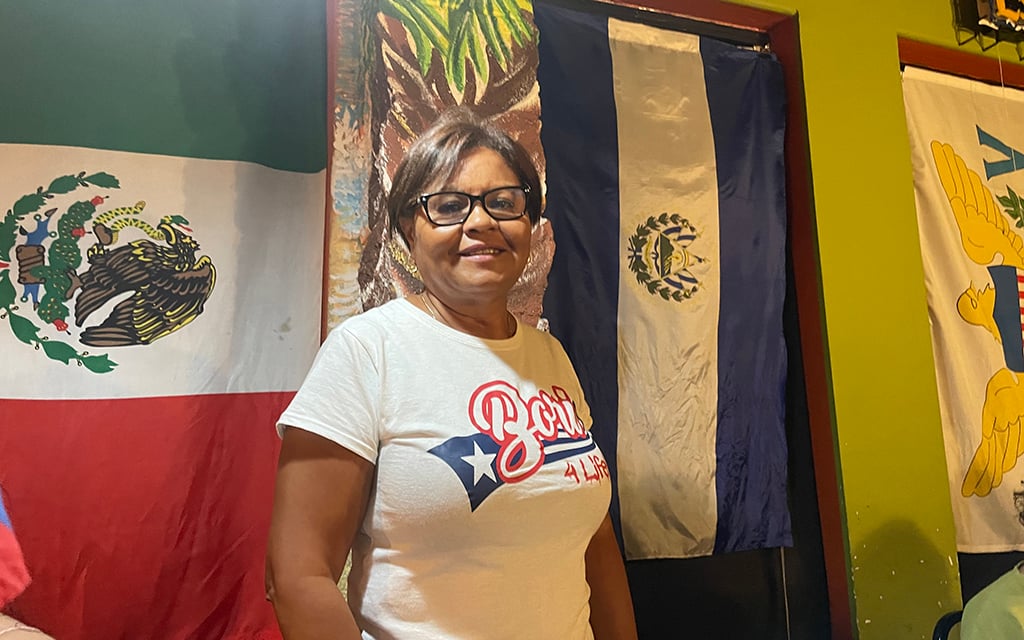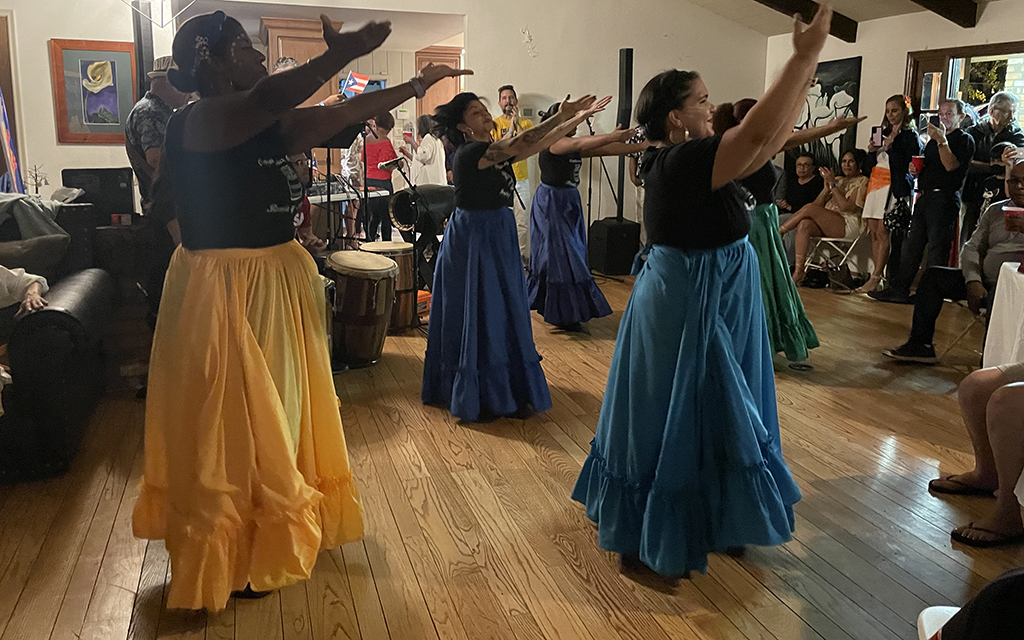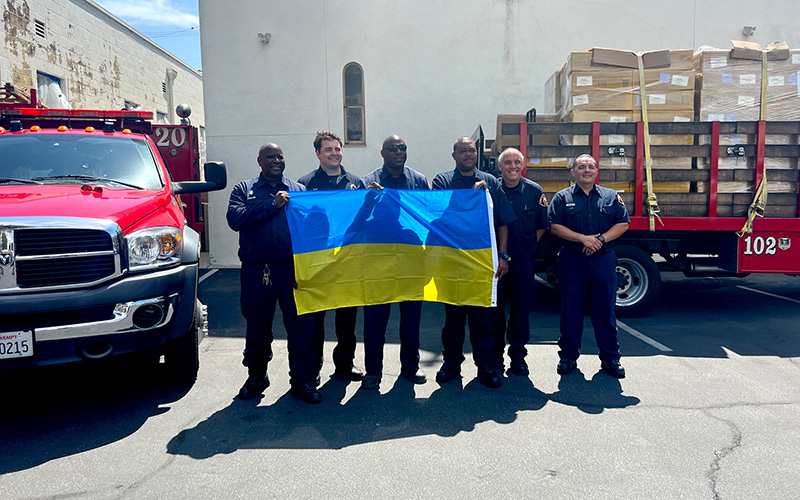PHOENIX – On a stormy Saturday in mid-October, people huddled inside a private home for a fundraiser to help Puerto Ricans affected by Hurricane Fiona. Dozens stood against the living room’s walls, others sat on couches and tables, and some poked their heads through the open patio doors. A Puerto Rican food truck was parked in the backyard.
The multigenerational group watched musicians and dancers perform and donated to help victims of the Category 4 storm, which had made landfall on the archipelago on Sept. 18. The gathering at the north Phoenix home was one of six fundraisers across the Valley organized by the Puerto Rican Center of Arizona, which together raised $15,000.
“We’re here as a Puerto Rican community. We see the needs of the people in Puerto Rico and we have a strong connection with the island and the people in Puerto Rico,” said Nydia Stuart, co-founder of the Glendale nonprofit. “We even have families there. My parents are there. My cousins are there. My brothers and sisters are there.”
The center aims to “promote and sustain the Puerto Rican culture” through “education, services and partnerships” in Arizona, according to its website. Stuart and another member of the center went to Puerto Rico to distribute the funds in early November.
According to 2021 census data, more than 55,000 people of Puerto Rican origin live in Arizona.
For members of the Puerto Rican Center of Arizona, such charitable mobilization isn’t new. Stuart said the organization raised funds and collected donations in 2017 after Hurricane Maria, a Category 5 hurricane, led to widespread destruction.
Fiona’s landfall on Puerto Rico was just days before the fifth anniversary of Maria. Puerto Rico’s battered infrastructure had not fully recovered in those five years.
There have been ongoing concerns of the privatization of Puerto Rico’s decaying energy grid, which has been operated by LUMA Energy since June 1, 2021. Before Fiona, there were major protests in Puerto Rico due to frequent power outages, the major disruptions to peoples’ everyday lives and the increased electricity costs, according to independent journalist Bianca Graulau.
The energy concerns were highlighted ahead of Fiona’s landfall in a music video-documentary by international Reggaeton artist Bad Bunny, which includes Graulau’s reporting.
Although the Biden administration allocated $60 million toward hurricane relief for the U.S. territory, in the weeks after Fiona, widespread power outages continued.
“The reality is very sad,” said María Cruz-Torres, professor of anthropology at Arizona State University’s School of Transborder Studies, who attended the north Phoenix fundraiser in October. “And I believe that we are going to see what we call more climate migrants, in this case, migration due to climate change is being seen in Puerto Rico but also due to the economic aspect.”
According to the Census Bureau, the population of Puerto Rico declined 4.4% in the year after Hurricane Maria. Cruz-Torres said every time she returns to her hometown there, neighbors always tell stories of former neighbors leaving for the U.S. mainland. The grim economic situation is multilayered and has been ongoing for years.
The local fundraising doesn’t address larger ongoing problems, Cruz-Torres said, but it epitomizes the type of help offered among community members in Puerto Rico.
“I think communities and organizations are really important,” she said. “The government is not doing the job it’s supposed to be doing, basically. That’s why we have so many community organizations, because if we wait around for the government, sometimes things don’t get done.”
Cruz-Torres said this grassroots aid gives people access to the most basic necessities: food, medicine, water.
“When you go to Puerto Rico, especially in small areas, rural communities, people still help each other a lot, and I think that’s key,” Cruz-Torres said. “Specifically, when you have situations like this – hurricanes or earthquakes – the first people who will really help you are the people who live next to you.”
This is a way for the Puerto Rican community to come together and contribute “our little grain of sand” to the big cause, she said.
The October fundraiser initially was intended to benefit the dance group Orgullo Boricua AZ, which performs bomba and plena, two styles of Puerto Rican dance. The group was hoping to raise funds to buy drums, said Teresa Ortiz, a member of the group, but Hurricane Fiona changed the dynamic.
“It just seemed that it was more important for us to donate the funds that we could raise for us for Puerto Rico, because they’re in a greater need than we are,” Ortiz said.
Yami Diaz Marcano, also a member of Orgullo Boricua AZ, spoke about the significance of this local community fundraising as her eyes welled up.
“I came here to Arizona almost four years ago, and I was there for Hurricane Maria,” she said. “And I saw what the community did for us, me being in Puerto Rico going through all of that. And for me being here to be able to help my people over there now is so meaningful because I get to be the helper now.”




